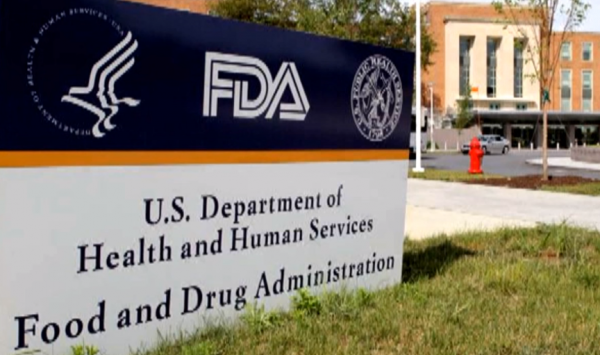 Parler
Parler Gab
Gab
- A new European study reveals women taking combined oral contraceptives face triple the risk of unexplained ischemic strokes.
- Researchers analyzed 500+ women across 14 countries, finding pill users aged 18 to 49 had significantly higher stroke risk.
- Even low-dose synthetic estrogen pills were linked to increased danger, raising concerns about Big Pharma’s transparency.
- Strokes in young adults have surged since the 1980s, with hormonal contraceptives potentially contributing to unexplained cases.
- Experts recommend safer alternatives like progestin-only pills, IUDs, or barrier methods, urging better risk evaluation for women.
The hidden dangers of synthetic hormones
The study, part of the SECRETO project, compared 268 women who had suffered cryptogenic strokes to 268 stroke-free women. After adjusting for factors like high blood pressure, smoking, and migraines, researchers still found a dramatic increase in stroke risk for pill users. Lead author Dr. Mine Sezgin, a neurologist at Istanbul University, stated, “Our findings confirm earlier evidence linking oral contraceptives to stroke risk.” She added, “What’s particularly notable is that the association remained strong even when accounting for other known risk factors, which suggests there may be additional mechanisms involved — possibly genetic or biological.” Most women in the study were taking low-dose formulations containing ethinylestradiol, a synthetic estrogen linked to blood clotting. While guidelines recommend doses of 35 micrograms or less, even these “low-dose” pills appear dangerous. The study raises urgent questions: Why has the medical-industrial complex downplayed these risks for decades? And why are women not being given full transparency about safer alternatives?Big Pharma’s cover-up and the rise of strokes in young adults
Strokes among young adults have surged since the 1980s, now accounting for 10 to 15 percent of all strokes in the U.S., according to Dr. Achillefs Ntranos, a neurologist not involved in the study. Cryptogenic strokes — those with no clear cause — make up 30 to 50 percent of ischemic strokes in young adults, suggesting hormonal contraceptives may be a hidden contributor. Despite these alarming trends, pharmaceutical companies continue to push hormonal birth control as “safe and effective,” ignoring mounting evidence of cardiovascular risks. The U.S. Food and Drug Administration (FDA) has previously acknowledged links between hormonal contraceptives and blood clots, embolisms, and even sudden death. Yet, warnings remain buried in fine print while doctors prescribe these drugs without adequate risk assessments.Safer alternatives exist
For women concerned about stroke risk, medical experts recommend non-estrogen options such as progestin-only pills (mini-pills), hormonal IUDs, copper IUDs, or barrier methods like condoms. Natural family planning, though less convenient, carries no pharmaceutical risks and can be up to 99 percent effective when followed correctly. Yet, these methods are rarely promoted by mainstream medicine, which remains deeply entangled with Big Pharma’s profit-driven agenda. Medical authorities insist the absolute stroke risk remains low — rising from roughly two to six cases per 100,000 women annually. But for the women affected, that statistic is meaningless. Every stroke is a life-altering catastrophe, and the fact that this risk is entirely preventable makes it even more egregious. Dr. Sezgin urged caution, stating, “Our findings should prompt more careful evaluation of stroke risk in young women, particularly those with additional risk factors.” Yet, how many doctors will actually heed this warning? How many women will be left in the dark until it’s too late? The study underscores the need for a personalized approach to contraception — one that prioritizes health over corporate profits. Women deserve full transparency about the risks of hormonal birth control and access to safer alternatives. At the very least, those taking the pill should opt for the lowest possible dose and monitor their blood pressure regularly. This study is yet another indictment of the pharmaceutical industry’s willingness to sacrifice women’s health for profit. For decades, synthetic hormones have been marketed as miracle drugs with minimal risks, while independent researchers have sounded the alarm. Now, the evidence is undeniable: Combined oral contraceptives triple stroke risk in young women, and the medical establishment has failed to protect them. Sources for this article include: TheEpochTimes.com DailyMail.co.uk Health.comLegislators weigh amendments to end college vaccine mandates for health science students
By Willow Tohi // Share
Groundbreaking study exposes EPA’s failure to protect babies from NITRATE contamination
By Ava Grace // Share
FDA’s FLAWED approval process: How hundreds of unsafe and ineffective drugs slip through
By Ramon Tomey // Share
Governments continue to obscure COVID-19 vaccine data amid rising concerns over excess deaths
By patricklewis // Share
Tech giant Microsoft backs EXTINCTION with its support of carbon capture programs
By ramontomeydw // Share
Germany to resume arms exports to Israel despite repeated ceasefire violations
By isabelle // Share










